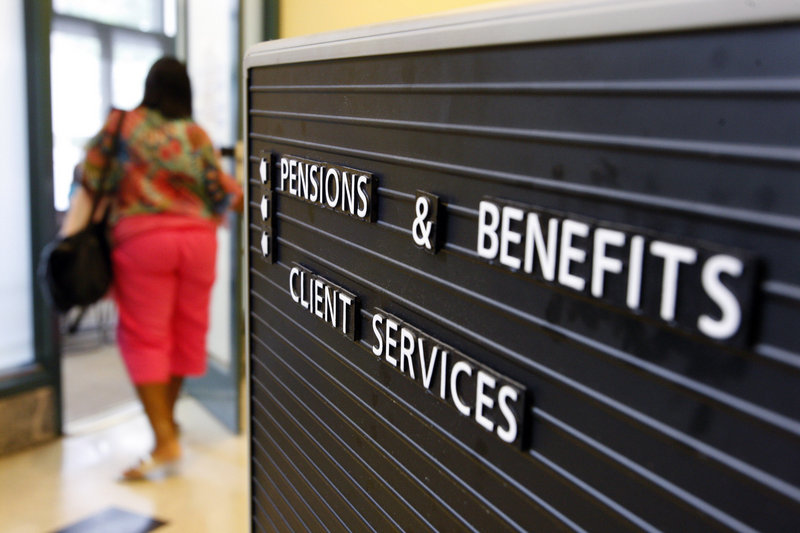TRENTON, N.J. – William Liberty began as a trash collector in Lindenwold, N.J., 37 years ago and worked his way up to public works supervisor. Until recently, he figured he would hold on to the job until he turned 65.
But this month, at 62, he was preparing his retirement papers, joining a rush among New Jersey public employees.
Liberty’s reason for getting out now: He is feeling the sting of a campaign by Republican Gov. Chris Christie and a growing number of other public officials across the U.S. to balance their budgets by making government employment — and retirement — less lucrative.
Liberty’s pay has been frozen for two years, he has been told to take unpaid furloughs, and now, “it’s going to get worse.” Pension proposals announced last week could reduce how much he receives when he retires.
Since 2008, New Jersey and at least 19 other states from Wyoming to Rhode Island have rolled back pension benefits or seriously considered doing do — and not just for new hires, but for current employees and people already retired.
It’s not just a U.S. phenomenon. In France on Wednesday, lawmakers voted to raise the retirement age from 60 to 62. If the measure wins final approval, France will become the latest European Union country to require workers to stay on the job longer because of a deficit-plagued pension system.
New Jersey’s governor spelled out the details of his proposal Tuesday after telegraphing his intentions for months. They include: repealing an increase in benefits approved years ago; eliminating automatic cost-of-living adjustments; raising the retirement age to 65 from 60 in many cases; reducing pension payouts for many future retirees; and requiring some employees to contribute more to their pensions.
“We must reverse the damage caused by fairy-tale promises that have fattened benefits and pensions to unsustainable levels,” Christie said.
New Jersey teachers make more than $67,000 a year on average. As of last year, new retirees’ pensions averaged about $46,000.
To be sure, the looming benefit changes are not the only reason many public employees in New Jersey are retiring. Some say they want out for the usual reasons — to spend time with the grandchildren or go fishing, for example — or complain that government layoffs and other cutbacks are making work unbearable.
But other employees figure that by retiring now, they can lock in certain benefits before it is too late.
Christie has warned that New Jersey’s pension fund will go belly up unless something is done to close the $46 billion gap between how much the state expects to bring into the system and how much it has promised to workers. Other states’ pension funds are in shaky condition, too.
The Pew Center on the States reported this year that in eight states, at least one-third of the future pension obligations for all public employees, including teachers, are unfunded. As of 2008, Pew said, state and local governments had pension obligations totaling $3.35 trillion — $1 trillion of that not covered by the future stream of government and employee contributions specified under current law.
In Maine, the unfunded liability is estimated at more than $3 billion.
Only four states — Florida, New York, Washington and Wisconsin — had fully funded pension systems as of 2008.
Part of the reason for the gap is that in tough times, states often skip paying their share into retirement funds. New Jersey, for instance, is skipping its $3.1 billion in payments this year. The problem is compounded when investments lose money, as many have in recent years. In 2008, for instance, the Pennsylvania State Employees’ Retirement System fund had investment losses of nearly 29 percent — among the worst in the country.
In the past, states have been more likely to reduce pensions for incoming employees, while generally leaving the benefits of current workers and retirees untouched. That strategy can be a way around objections from unions and lawsuits from those who say the government is reneging on promises.
Keith Brainard, research director for the National Association of State Retirement Administrators, said it may be unprecedented that so many states at once are raising employees’ pension contribution rates.
“Whether legislatures have the power to change benefits for people who are already in the system, that’s a tough question,” said Ronald Snell, an analyst for the National Conference of State Legislatures who monitors public pension issues across the country. “It’s unresolved in a lot of places.”
In some states — including South Dakota and Mississippi — public employee retirements are up by more than 20 percent, though it is not clear whether changes to pension programs there are a factor.
Unions are on guard against the benefit cuts — and the implication that workers are to blame for states’ financial messes.
Said Matt O’Connor, a spokesman for the Connecticut State Employees Association, “What we don’t need is more scapegoating of public service workers and their benefits.”
Send questions/comments to the editors.



Success. Please wait for the page to reload. If the page does not reload within 5 seconds, please refresh the page.
Enter your email and password to access comments.
Hi, to comment on stories you must . This profile is in addition to your subscription and website login.
Already have a commenting profile? .
Invalid username/password.
Please check your email to confirm and complete your registration.
Only subscribers are eligible to post comments. Please subscribe or login first for digital access. Here’s why.
Use the form below to reset your password. When you've submitted your account email, we will send an email with a reset code.